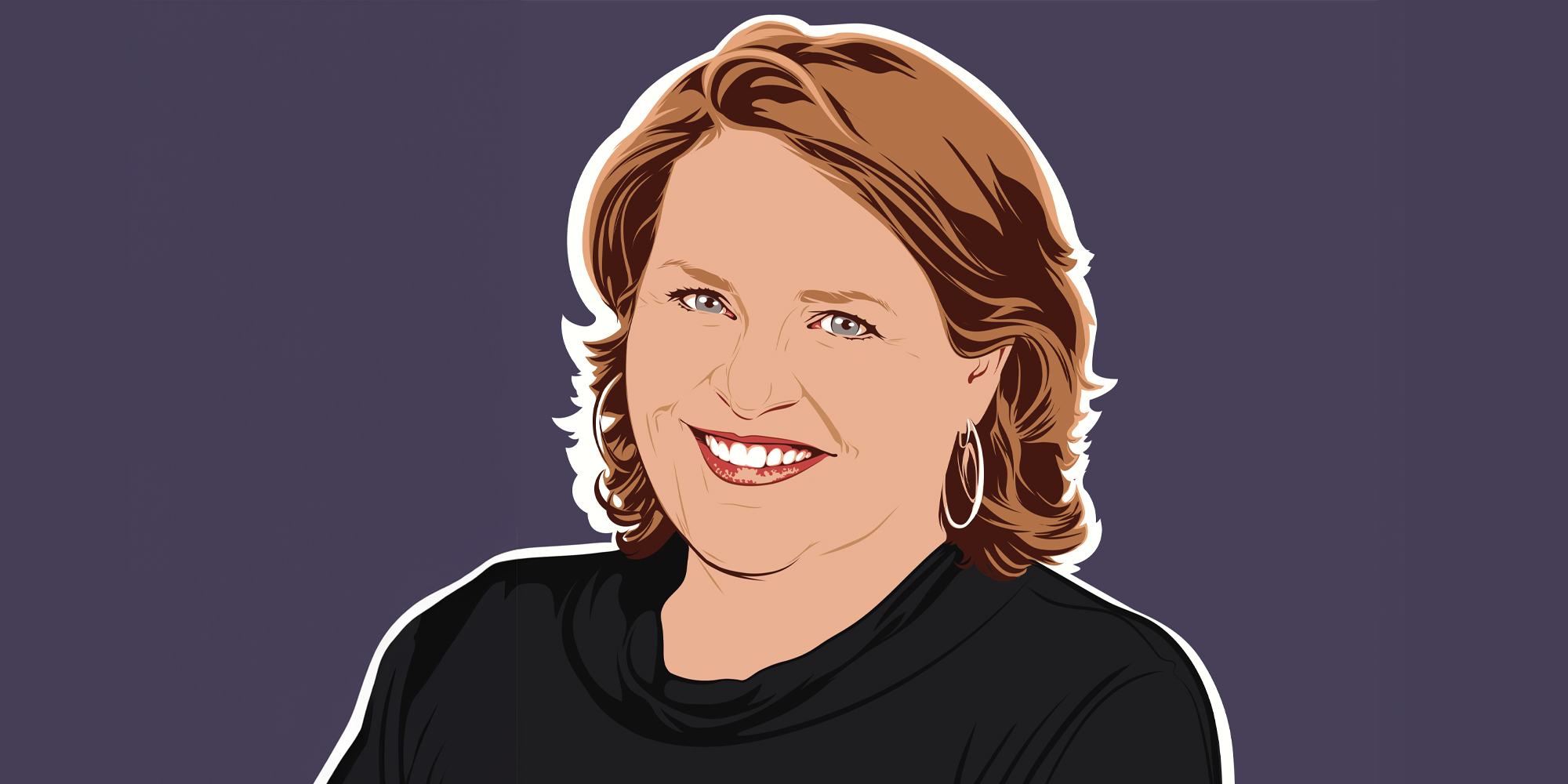
(Illustration by Aaron Sacco)
Questions for the Institute of Politics director and former US senator (D-ND).
What surprising job have you had in the past?
I was a seasonal construction worker at a water pipeline company, where I glued two-inch pipe for a rural water system. Do you want a cooler one? It might be that I worked in a Popsicle factory, cleaning up the lines.
Did you get free Popsicles?
Oh, yeah, Fudgesicles and Popsicles and Dreamsicles. I would come home literally reeking of cream. My roommate at the time would say, "You cannot come in the house." She would put a shirt outside, and I would strip down before I would even walk in the house.
What would you want to be doing if not your current profession?
I would still like to be a United States senator. People always ask me, "Do you miss it?" And I say it was a lot of hard work, but it was such a privilege, and this is such a challenging time. I don't think there are enough people thinking about the future of our country who have those jobs. So I would still like to be a United States senator. That was a good gig.
What do you hate that everyone else loves?
I hate the 24-hour news cycle. It drives people to make rash decisions, and there isn't enough time to have an in-depth dialogue about what's going on in the world. And so tragedy happens, and everybody sees it for a day, and then there's another thing that happens, and there's never time for the public to process. I think it has shortened our attention span on the problems in America.
What was the last book you finished?
I am in the process of reading Nate Silver's (AB'00) book On the Edge: The Art of Risking Everything (Penguin Press, 2024), an amazingly interesting book. It is incredibly insightful in terms of explaining some cultures that I don't live in.
What was the last book you recommended to a friend?
I always recommend this book to people who care about health care: Being Mortal: Medicine and What Matters in the End (Metropolitan Books, 2014) by Atul Gawande. It's a very important book about how we deal with health care in this country and what we can do to provide quality health care—but also humane health care, realistic health care.
What book changed your life?
I would say To Kill a Mockingbird. It made me want to be a lawyer.
What person, alive or dead, would you want to write your life story?
My daughter, Allie [Alethea Lange, AB'08], who's a UChicago alum. I would want her to write it because even though she's probably a little biased, she also comes out of that University of Chicago culture where she will tell the truth. It will be an honest depiction of who I am as a person.
What's your least useful talent?
That's a tough question. I think all talents are useful. I can sing. It's not particularly useful, but it gives me joy. And occasionally it gives other people joy.
Tell us the best piece of advice you've received—or the worst.
The best piece of advice that I ever received was, "Never back up more than you have to." That's from my friend Barbara Mikulski, who added to that, "Neutral gets you nowhere."
What advice would you give to a brand-new Maroon?
You are not the center of the universe, and the more you realize that, the more joyful and productive you're going to be. It's not about you. Really, really spend some time thinking about where you are in the universe and how you fit in.
Who was your best teacher, and why?
I think my best teacher was Lloyd Omdahl, who taught state and local government at the University of North Dakota. He was one of the funniest people, but he knew how to combine the art of entertaining with the art of educating. Before I took his class, I would never have thought that I would find a place in state and local government. He really opened up a world of opportunity.
What's your most vivid UChicago memory?
The opportunity to give the 2024 College Class Day speech, and the honor of addressing a class that had the challenges of COVID and then the challenges of pretty substantial student protests at the end. My hope is that I said something that was memorable, that would help them along their journey, because they were a unique class.
